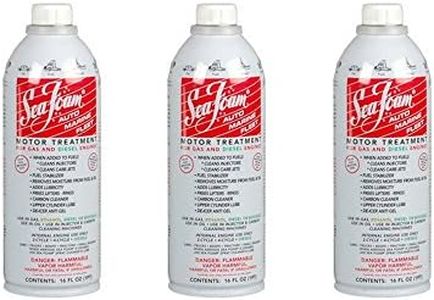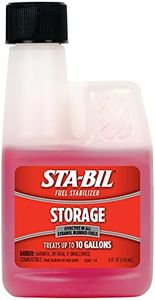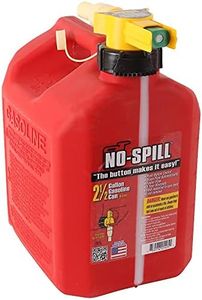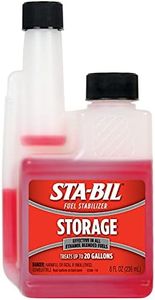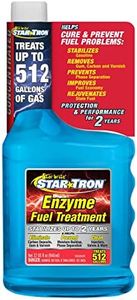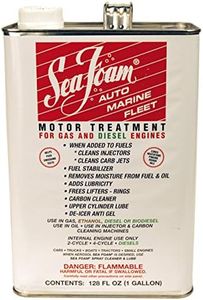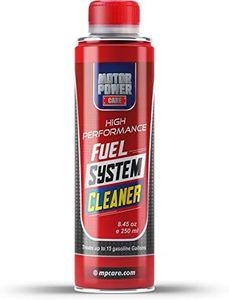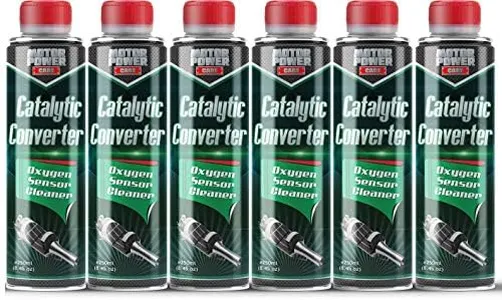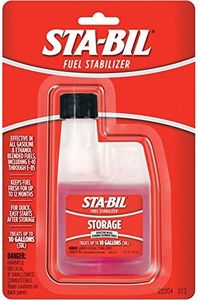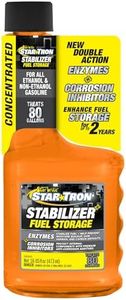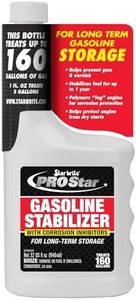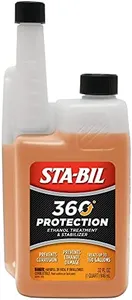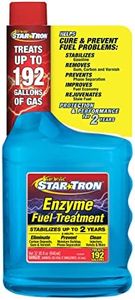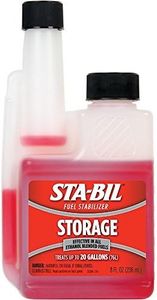10 Best Gas Stabilizers 2025 in the United States
SeaFoam SF-16 Motor Treatment 16 oz. Can (3)
The SeaFoam SF-16 Motor Treatment is a popular choice in the automotive category with a strong presence in fuel system tools. It is designed to stabilize fuel, clean fuel injectors and carburetor passageways, lubricate upper cylinders, and control moisture in fuels. With a can size of 16 oz and a pack of three, it provides a good quantity for regular maintenance tasks.
Most important from
24047 reviews
No-Spill 1405 2-1/2-Gallon Poly Gas Can & STA-BIL Storage Fuel Stabilizer, 8 fl. oz. (22208), Red
The No-Spill 1405 2-1/2-Gallon Poly Gas Can paired with the STA-BIL Storage Fuel Stabilizer offers significant advantages for those needing reliable fuel storage solutions. With a stabilization duration of up to 24 months, the STA-BIL stabilizer ensures that your fuel remains fresh, eliminating the need for draining fuel before storage. This is particularly useful for seasonal equipment that isn't used year-round. The compatibility with all gasoline types, including ethanol blends, adds to its versatility, making it suitable for various engines and machinery. The 8 fl. oz. dosage is convenient and ensures effective performance without frequent reapplication.
Top 10 Best Gas Stabilizers 2025 in the United States
SeaFoam SF-16 Motor Treatment 16 oz. Can (3)
SeaFoam SF-16 Motor Treatment 16 oz. Can (3)
No-Spill 1405 2-1/2-Gallon Poly Gas Can & STA-BIL Storage Fuel Stabilizer, 8 fl. oz. (22208), Red
No-Spill 1405 2-1/2-Gallon Poly Gas Can & STA-BIL Storage Fuel Stabilizer, 8 fl. oz. (22208), Red
STAR BRITE Star Tron Enzyme Fuel Treatment - Concentrated Formula 32 Fl. Oz. – Treats up to 512 Gallons - Fuel Stabilizer & Treatment, Gasoline Stabilizer, Star Tron Marine Enzyme Fuel Treatment
STAR BRITE Star Tron Enzyme Fuel Treatment - Concentrated Formula 32 Fl. Oz. – Treats up to 512 Gallons - Fuel Stabilizer & Treatment, Gasoline Stabilizer, Star Tron Marine Enzyme Fuel Treatment
Sea Foam SF128 Motor Treatment, 1 Gallon
Sea Foam SF128 Motor Treatment, 1 Gallon
Our technology thoroughly searches through the online shopping world, reviewing hundreds of sites. We then process and analyze this information, updating in real-time to bring you the latest top-rated products. This way, you always get the best and most current options available.

